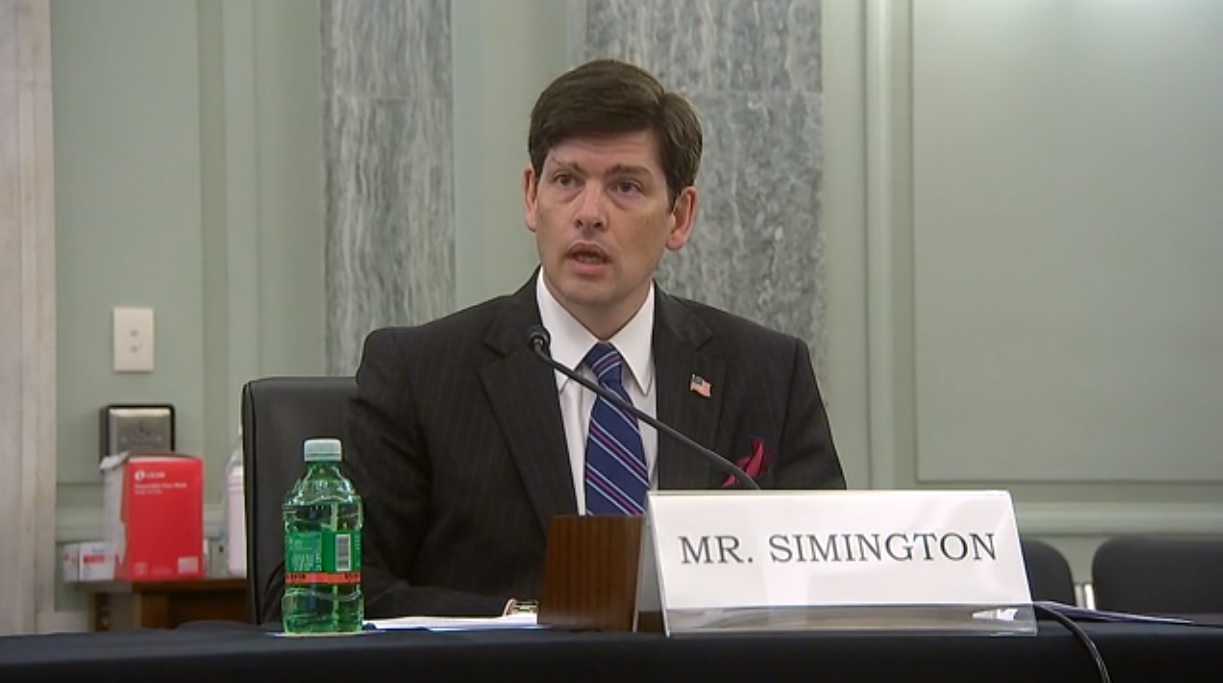FCC’s Nathan Simington: I Don't Want to Regulate Wireless Receivers
But Republican says threat of government action could prod industry standards

The smarter way to stay on top of the multichannel video marketplace. Sign up below.
You are now subscribed
Your newsletter sign-up was successful
Federal Communications Commission member Nathan Simington said he doesn’t favor the agency setting standards for wireless receivers, but is arguing the industry needs to do so.
The Republican commissioner has clearly been getting pushback on his push for wireless receiver standards, which he argues are necessary given how much of the world is and will be running on wireless devices. He said the government may have to threaten to implement a standards regime if the industry does not do it voluntarily, though he says he favors voluntary action.
Also Read: Simington Has Dynamic View of Spectrum Sharing
He made that clear in a speech to the Free State Foundation Friday (Oct. 15), marking that free-market group's 15th anniversary.
Simington said he had heard from some that building better receivers was an added expense, but so too are guard bands (swaths of spectrum set aside as a buffer between spectrum band users) and interference. In his view, not having those standards and allowing the wireless future to be built “on the back of cheap edge devices that are sensitive to interference in an increasingly spectrally dense midband environment” could be a big expense “when” — he did not say “if” — those devices fail.
Simington suggested it would be cheaper to develop receiver standards.
Then, he said, there are those who say receiver standards — which he equates with building better receivers — stifles innovation, or is beyond the FCC's authority. He disputed both points, though signaled he recognizes pushback is an occupational hazard in Washington, joking that: “I‘m sure if I came out today in support of chocolate ice cream, I'd be hearing from the vanilla lobby in due course with a PowerPoint on the importance of vanilla beans to the economy of Madagascar,” he said.
The smarter way to stay on top of the multichannel video marketplace. Sign up below.
As to stifling innovation, he says he is skeptical. He says better standards could put (price) pressure on Chinese manufacturers and make it more feasible for non-Chinese manufacturers, a sort of rising tide of spectral-wave receivers that lifts all boats. That sounds to him like actually protecting innovation, or at least mitigating some of China's dominance in the market.
As to the argument that the FCC regulates transmissions, not receivers, he said the agency clearly regulates reception since it regulates interference and interference to an end user is part of that process. He agrees that the FCC has not focused on receivers, but does not see an outright prohibition.
The FCC can encourage industry coordination and self-regulation, he said, but he suggests it may take shaking a big stick. “I do think that the specter of regulation, from time to time, must loom in order to help industry act,” he said. “Eventually, either this issue will be solved, or the commission's hand will be forced by public opinion, which is not the best way to get nuanced, thoughtful, capacious regulation.”
The Consumer Technology Association, one of the critics device security regs, has said that it has questions about whether the FCC, which has sought comment on standards, "will duplicate or disrupt other ongoing efforts, whether changes would undermine the existing equipment authorization process, and whether the agency has the authority to take the actions contemplated..."
Contributing editor John Eggerton has been an editor and/or writer on media regulation, legislation and policy for over four decades, including covering the FCC, FTC, Congress, the major media trade associations, and the federal courts. In addition to Multichannel News and Broadcasting + Cable, his work has appeared in Radio World, TV Technology, TV Fax, This Week in Consumer Electronics, Variety and the Encyclopedia Britannica.

